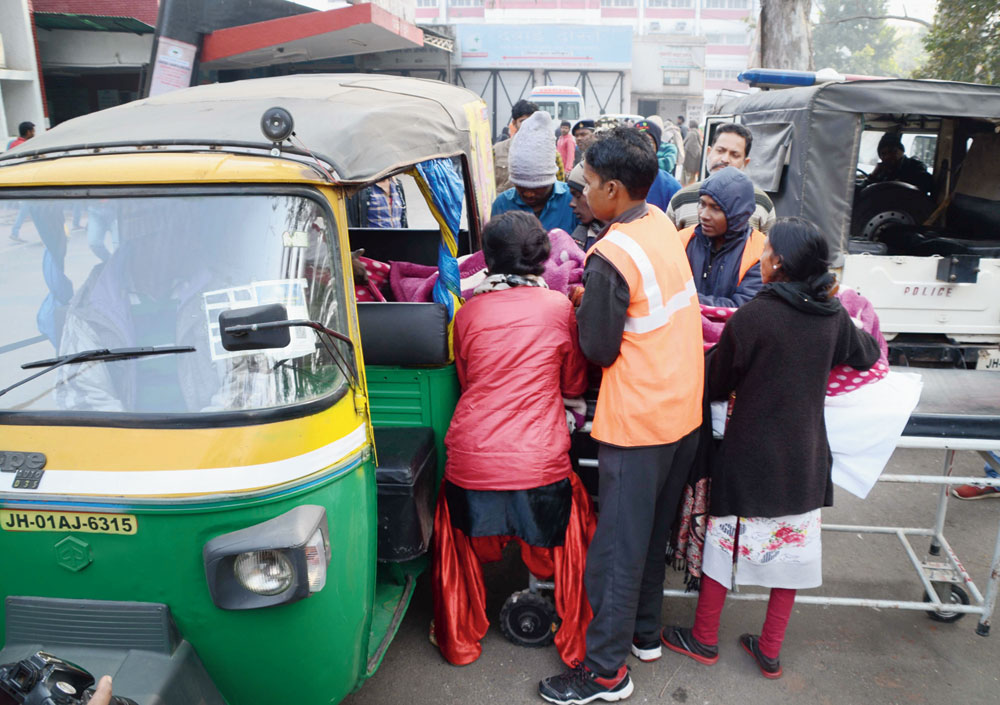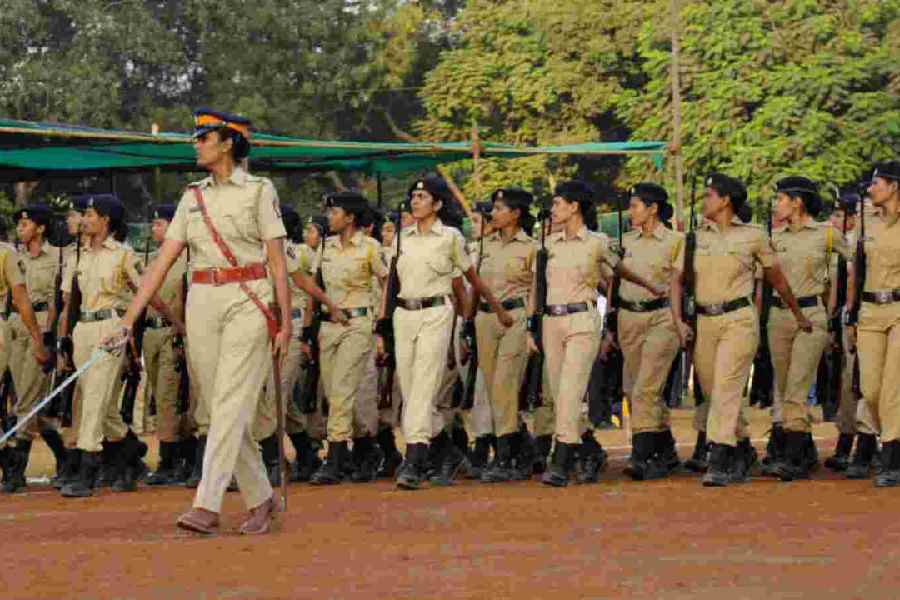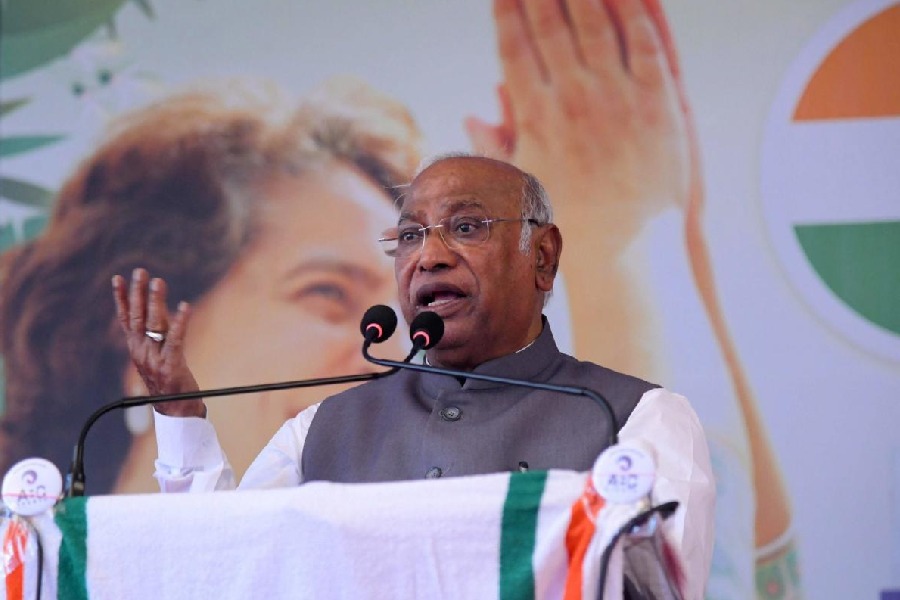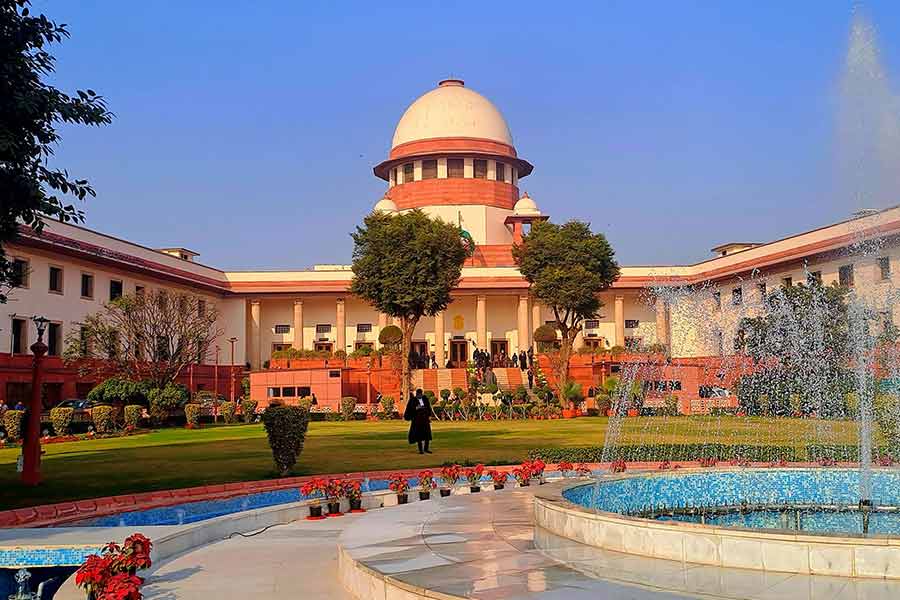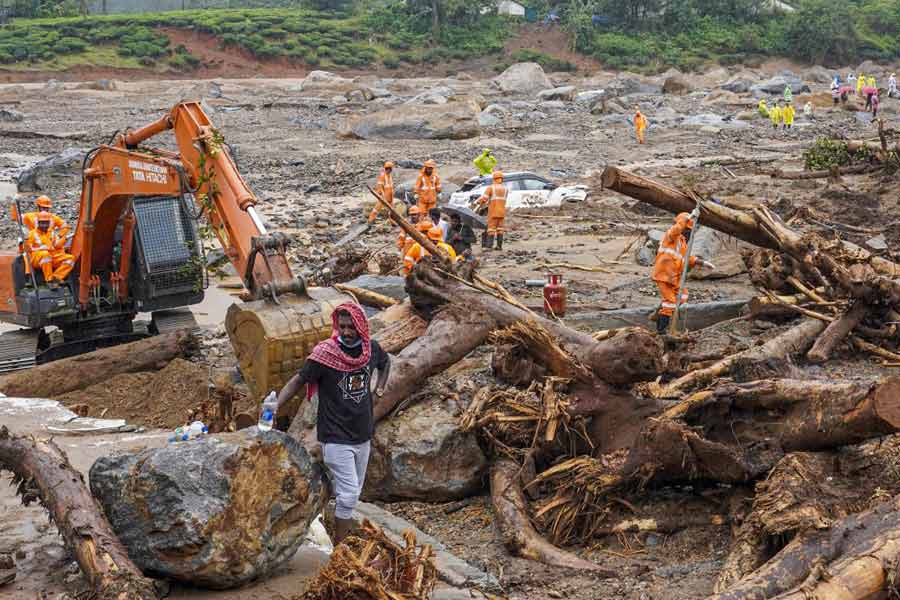Patient families at RIMS had a harrowing time on Tuesday after over 100 private ambulances operators went on an indefinite strike over a dispute with the authorities of the state-run over allotment of parking space.
At one point, when the operators allegedly prevented some families from using ambulances run by NGOs, police had to be called in to soothe tempers. The drivers had an altercation with Bariatu police station OC Ajay Kumar Keshri.
Private ambulances form the backbone of the service at RIMS that has nine ambulances — two cardiac — of its own. Additionally, there are four other ambulances run by NGO Jindagi Na Milegi Dobara. These are available on demand.
The dispute is over RIMS authorities asking private ambulances to no longer park in front of the emergency ward gate. Instead, they have been asked to move to the multipurpose parking lot set up in front of hostel number 1.
But private ambulance driver Vinay Verma denied their vehicles were leading to traffic bottlenecks at RIMS.
“We park our vehicles near the emergency gate for the convenience of patients and their attendants so that they don’t have to run here and there. But now we have been asked to shift to a location which is around a kilometre away from the emergency ward,” he said.
Verma claimed they had tried to contact RIMS director D.K. Singh but he apparently refused to meet them.
The deadlock led to a crowd of patient families waiting at the emergency gate for transport. Sangita Turi had a tough time finding an ambulance to transport the dead body of her mother.
“My mother Nemi Turi was being treated at RIMS. She died on Tuesday. But no ambulance was available. I finally managed an auto rickshaw after three hours,” the woman from Ramgarh said.
RIMS superintendent Vivek Kashyap said the private operators had been provided a permanent parking space, but that they weren’t moving there.
“They park their ambulances in front of the emergency ward, which is also the main entrance of the building. This creates traffic congestion. They have not been denied entry. They can pick up or drop patients from/to the hospital. They even prevented some patients from using other ambulances after which we called the police,” he explained.

